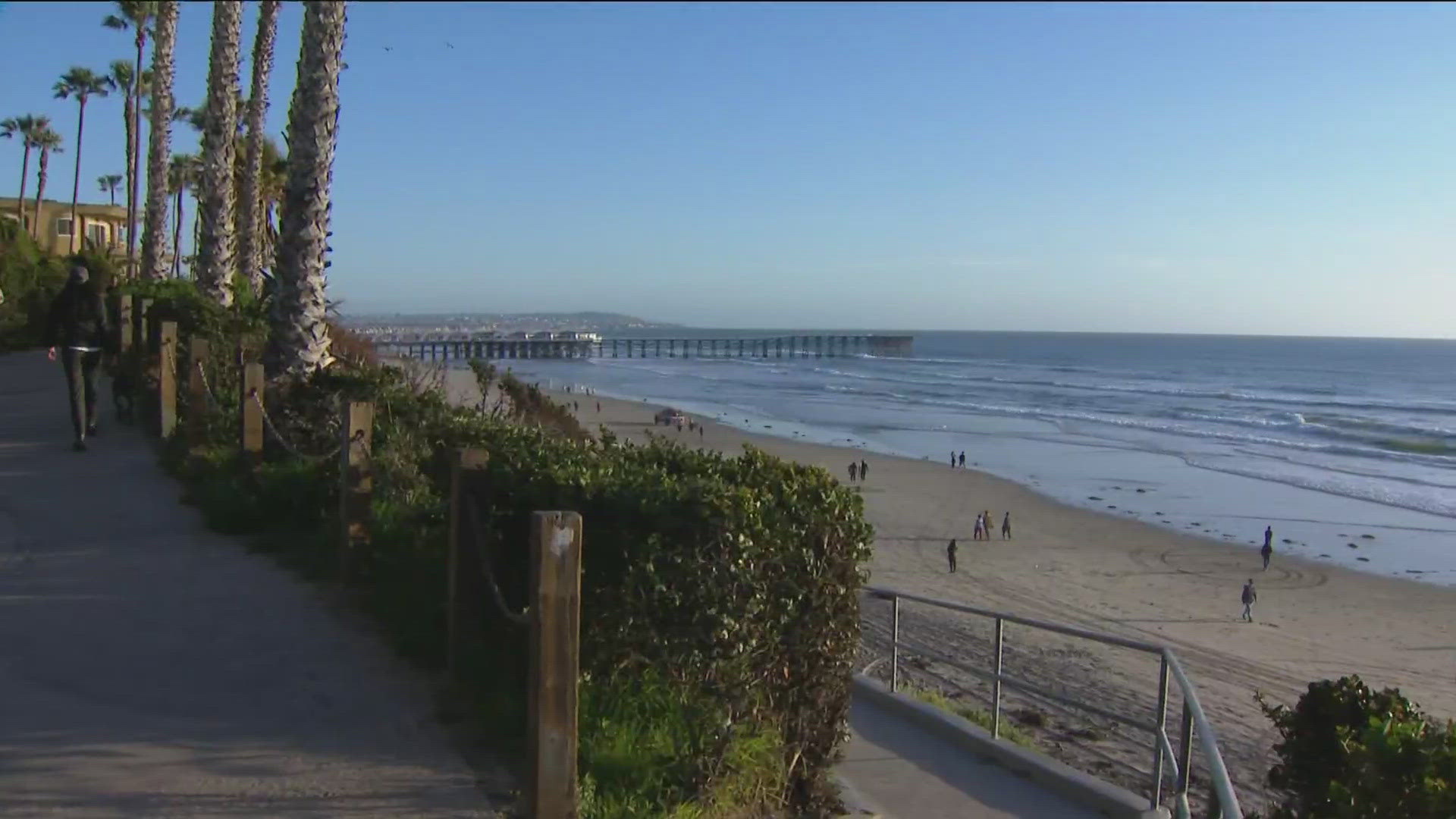IMPERIAL BEACH, Calif. — A new task force is being created to look into illnesses that might be stemming from the Tijuana sewage crisis. The Imperial Beach mayor, doctors and researchers are teaming up.
They're hoping to find out how air pollution from the sewage is impacting the health of neighboring residents.
Beaches in Imperial Beach have been shut down for more than 900 days. Doctors are treating sick patients, who aren’t even going into the ocean. The sewage can become airborne through sea spray, and they say the smell and issues are only getting worse.
"I've never experienced it quite this strong it has been really bad," said Doctor Matthew Dickson.
He and his wife Doctor Kim Dickson run South Bay Urgent Care in Imperial Beach.
"We're seeing a lot of people coming in here with wheezing, coughing so people with asthma and of all ages. We looked at some numbers from this time last year to this year and we've had a 140% increase in people needing breathing treatments," he said.
They're part of this newly formed task force. It includes other doctors, and researchers at San Diego State and Scripps Institution of Oceanography.
Mayor Paloma Aguirre says next they'll be rolling out a survey to find how the sewage is impacting residents.
"If we're only looking at waterborne illnesses we're missing a big piece of the puzzle. We want to look at airborne connections and potential connections," she said.
The task force also aims to get the broken wastewater treatment plant fixed sooner and prevent sewage from Tijuana from spilling into San Diego.
"Hopefully if the ball gets rolling a little quicker we can get a state of emergency declared at the federal level which means immediate fixing of the plant down here that's broken. The plant being broken the last two years has contributed to a lot of illness in our community," Dr. Kim Dickson said.
Last year researchers at UC San Diego confirmed coastal water pollution can become airborne. They said it often happens when waves break. Their study focused on Imperial Beach and the Tijuana River.
The federal government just approved another $150 million to help fix the treatment plant. This year Mexico began building a new $33 million treatment plant.
SEWAGE CRISIS: Environmental groups say federal government violates Clean Water Act with border sewage crisis

